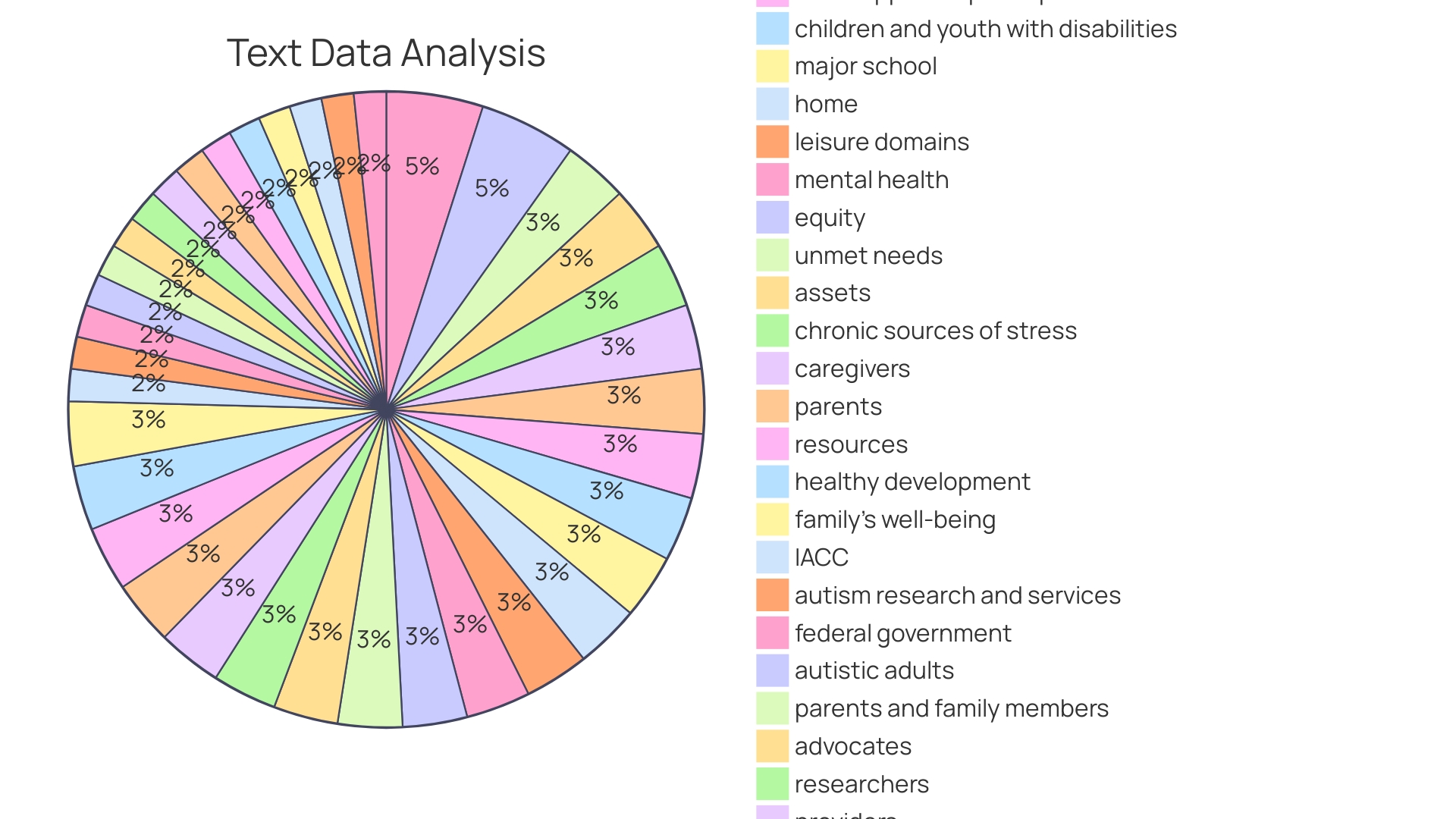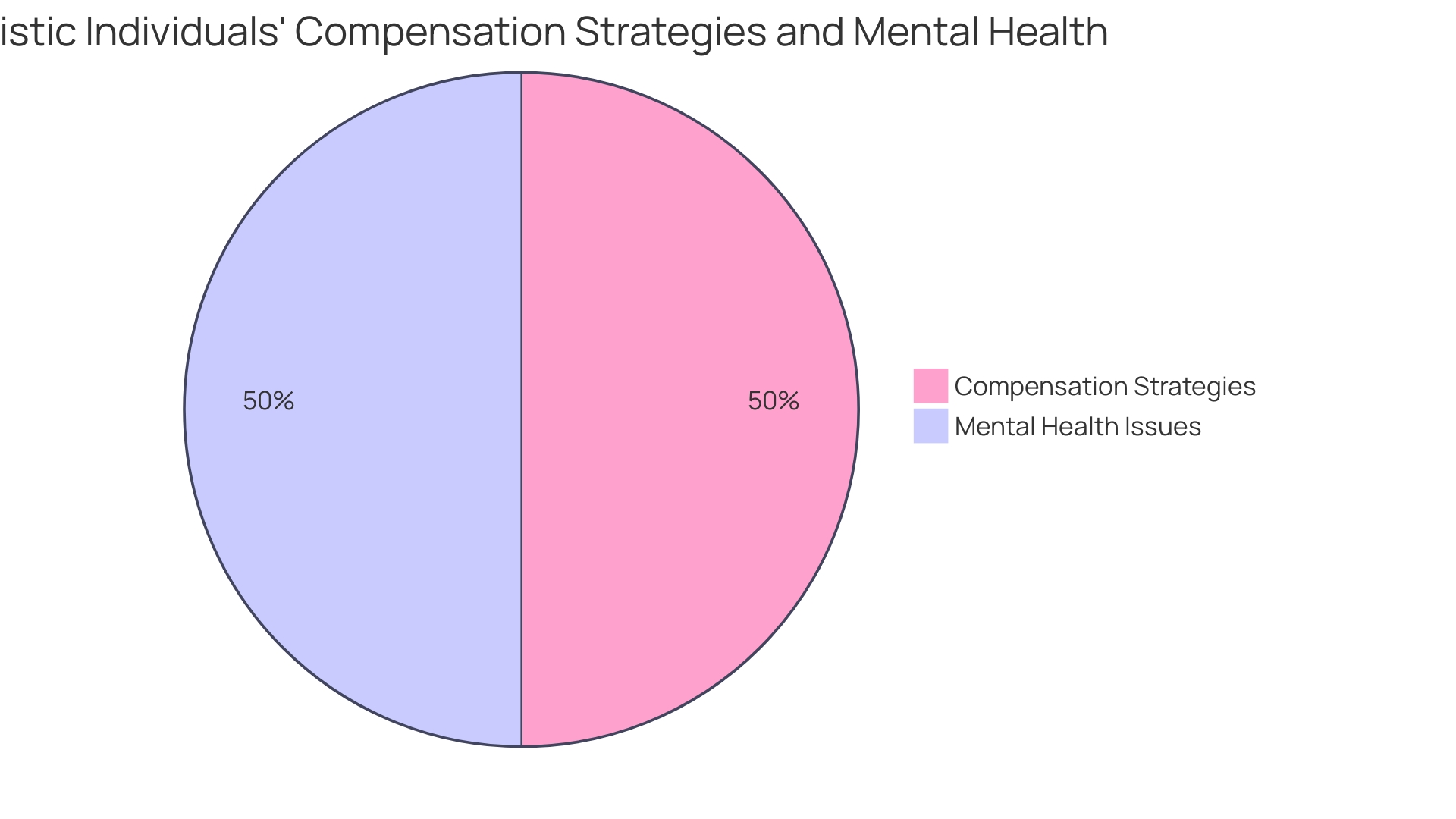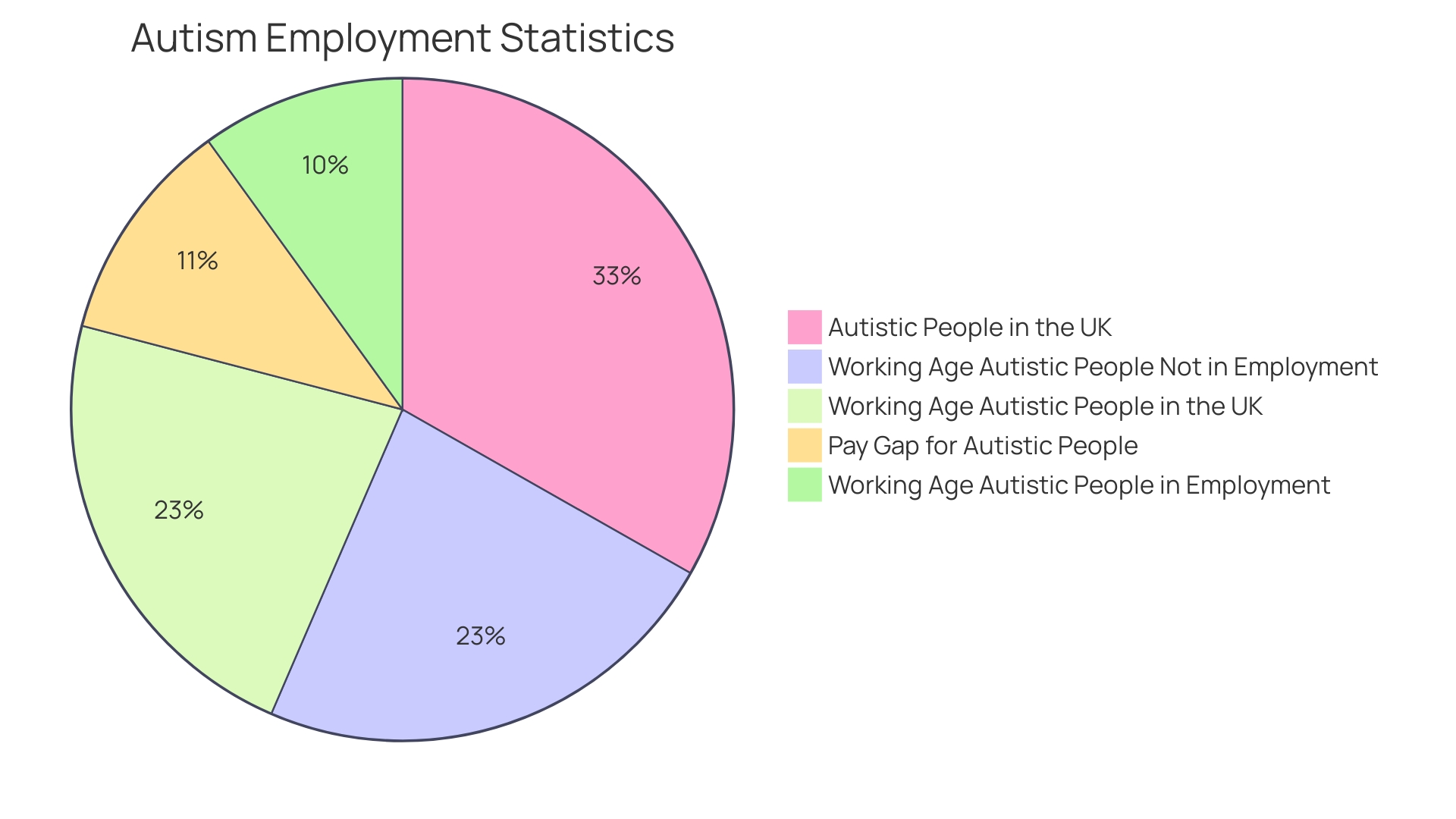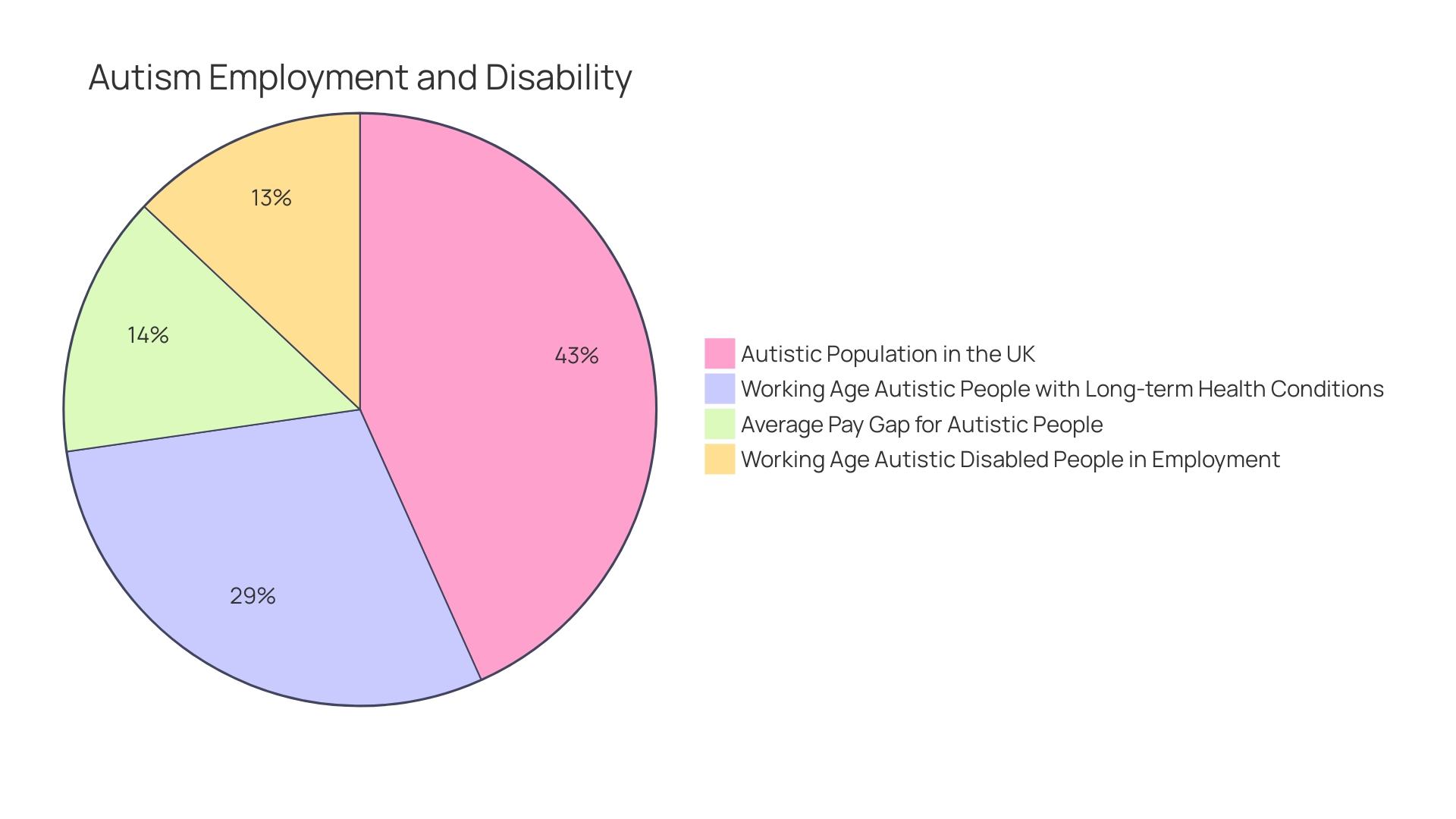Introduction
Navigating the complexities of adult autism screening is a critical step towards ensuring that individuals on the spectrum receive the support they need throughout their lives. The path to getting diagnosed with autism as an adult is not always straightforward, but the importance of a diagnosis extends beyond personal validation. Quality medical care for autistic adults is essential, as studies indicate a lower life expectancy and a lack of available services and guidance.
Initiatives are emerging to bridge the gap in care, focusing on educating clinicians and caregivers about the specific needs of autistic adults. Understanding the signs of autism in adulthood is crucial, as many individuals may be undiagnosed or misdiagnosed. While the journey to diagnosis or self-acceptance is deeply personal, it is apparent that whether or not to pursue a formal diagnosis is a decision that carries both individual and systemic implications.
Why Adult Autism Screening is Important
Navigating the complexities of adult autism screening is a critical step towards ensuring that individuals on the spectrum receive the support they need throughout their lives. While a formal diagnosis can be a turning point for many, the reality is that the path to getting diagnosed with autism as an adult is not always straightforward. The autistic and neurodivergent community widely recognizes the validity of self-diagnosis, especially given the limitations and inconclusive results that can arise from the medical testing model for autism. This understanding is crucial because, for some, an official diagnosis may not alter the support they require to thrive. However, for others like Heather Florio, who was diagnosed at 41, the clarity of a diagnosis can be transformative, allowing them to fully embrace their identity and navigate life with newfound self-acceptance.
The significance of adult autism diagnosis extends beyond personal validation. Christopher McDougle, MD, emphasizes the need for quality medical care for autistic adults, who, post-high school, often face a void in services and guidance. This lack of support can have dire consequences, as studies indicate that individuals on the autism spectrum have a lower life expectancy compared to the general population, with conditions such as muscular dystrophy and neurological disorders like epilepsy contributing to this disparity.
Despite the challenges, initiatives are emerging to bridge the gap in care. The Adult Autism Health Resources initiative spearheaded by Dr. McDougle and supported by Harvard Medical School is one such example, focusing on educating clinicians and caregivers about the specific needs of autistic adults. Moreover, advancements in diagnostic tools are underway, with organizations like NeuroQure striving to provide timely and accurate autism diagnoses, potentially shortening the diagnostic journey that many families face.
For adults wondering about the signs of autism, understanding the core characteristics—challenges with social communication and restricted, repetitive behaviors—is essential. Recognizing these signs can lead to a better understanding of oneself or a loved one who may have undiagnosed ASD. While the journey to diagnosis or self-acceptance is deeply personal, it is apparent that whether or not to pursue a formal diagnosis is a decision that carries both individual and systemic implications.
Challenges in Accessing Diagnostic Services for Adults
Securing accurate autism diagnoses for adults presents unique hurdles. The scarcity of professionals with expertise in adult autism, compounded by lengthy wait times, poses a significant challenge for those seeking a diagnosis later in life. This difficulty is further exacerbated by a general lack of awareness regarding autism in adults, resulting in obstacles that delay or prevent necessary assessments. Moreover, while some individuals may find solace in self-identification without formal diagnosis, others pursue official recognition for personal validation or to access specific resources. Research underscores the urgent need for enhanced training of health professionals in autism knowledge, tailored to accommodate the communication and sensory preferences of autistic adults. Reports indicate that autistic individuals frequently encounter subpar healthcare experiences and unfulfilled needs compared to their non-autistic counterparts, highlighting a need for systemic change. Initiatives like the Adult Autism Health Resources led by Harvard Medical School aim to address these gaps by educating healthcare providers and advocating for the adult autistic community. Personal stories, like that of Heather Florio, who received a diagnosis at 41, illustrate the transformative impact of recognizing one's autism, underscoring the importance of accessible diagnostic services. As the prevalence of autism diagnoses in children rises, it is imperative to shift focus towards the less understood trajectory of autistic adults and ensure that quality medical care extends throughout their lifespan.

Key Features of Diagnostic Evaluation for Autistic Adults
A diagnostic evaluation for autism in adults encompasses a nuanced investigation into key behavioral domains. It examines elements like social communication intricacies, the presence of repetitive actions, sensory processing differences, and cognitive functionality. This comprehensive assessment is pivotal, not only for understanding the individual patterns within the autism spectrum but also for tailoring support and interventions. In some circles, there's a rising acceptance of self-diagnosis within the neurodivergent community, especially when formal testing can be arduous and may yield inconclusive results. An official diagnosis is not always paramount for everyone, yet some choose to pursue it for validation and to facilitate understanding among peers. Meanwhile, advancements suggest that artificial intelligence, using retinal scans, might aid early detection of autism, potentially reshaping diagnostic approaches. With autism's prevalence estimated at 1 in 36 individuals, recognizing its signs in adulthood becomes crucial, as many adults might be undiagnosed or misdiagnosed. Identifying challenges in social communication and restrictive behaviors can lead to a better grasp of autism and ensure individuals receive the necessary resources for a fulfilling life.
Steps to Get Evaluated for Autism as an Adult
For adults pondering the significance of an autism diagnosis, it's key to know that the path to understanding oneself doesn't necessarily require formal testing. The autism community embraces self-identification, especially considering that medical evaluations can often result in inconclusive outcomes. If an official label doesn't factor into the support and success you seek, then the investment of time, energy, and finances in diagnostic procedures might not be imperative. Nonetheless, for some, like those who wish to solidify their experiences without scrutiny from others or help loved ones embrace their self-identification, the diagnostic journey is worthwhile.
Despite the prevalence of autism in adults—estimated at 1 in 45 in the U.S.—many have either gone undiagnosed or been misdiagnosed. Recognizing autism's indicators, such as difficulties with social communication and repetitive behaviors, is vital in contemplating a possible undiagnosed condition. Furthermore, the importance of early intervention is undisputed, as organizations like The Autism Community in Action (TACA) advocate for prompt and accurate diagnosis to facilitate effective treatments.
Emphasizing the need for comprehensive care, experts like Christopher McDougle, MD, highlight the longevity of autistic individuals and the necessity for continued access to quality medical care beyond school age. Initiatives spearheaded by Harvard Medical School aim to address this by educating clinicians and self-advocates about the needs of autistic adults.
The intersection of self-awareness and formal recognition of autism is a personal decision, influenced by individual circumstances and the value placed on an official diagnosis. For some, like Heather Florio, diagnosed at 41, the clarity a formal diagnosis brings can be transformative, allowing for acceptance and understanding of one's unique perspective.
Compensation Strategies and Masking Symptoms
Autistic individuals often navigate a world that's not tailored to their unique way of experiencing life. This can lead to the development of various strategies to cope with social situations, commonly known as compensation or masking. Such methods involve concealing autistic traits to align with societal norms and are integral to understanding the support needed for autistic adults. With approximately 1 in 70 people being autistic, many adults face significant challenges, including a substantial employment gap. Statistics show that only around 30% of working-age autistic individuals are employed, compared to 80% of non-disabled people. Additionally, autistic people experience the largest pay gap among disability groups. Efforts to understand and support autistic individuals must acknowledge these strategies as they can impact mental health and well-being. Research suggests that up to 70% of autistic people engage in social camouflage, which includes compensation, masking, and assimilation, to navigate social intricacies. This effort can be demanding due to differences in executive function and social cognition. Understanding the complex nature of these coping mechanisms is vital for healthcare providers, employers, and support networks to create inclusive environments that harness the strengths of autistic individuals and address the barriers they face.

Impact of COVID-19 on Autism Evaluations
The landscape of autism evaluations has been dramatically reshaped by the COVID-19 pandemic, with adults facing hurdles previously unseen. Diagnostic centers have shuttered their doors or scaled back operations, limiting the availability of in-person assessments and extending the waiting periods for services. This has been particularly challenging for those on the cusp of discovering their place on the autism spectrum. The pandemic's toll extends beyond the immediate health crisis, as over 265,000 children have experienced the loss of a parent or caregiver, underscoring the far-reaching impacts on family units, especially within communities of color. As we grapple with these challenges, it's crucial to stay informed about the evolving scenario to seek out and adapt to new pathways for evaluations and support. Recognizing the profound effect of the pandemic on the accessibility of autism evaluations not only raises awareness but also prompts the exploration of alternative and innovative solutions to support individuals during these trying times.
Post-Diagnostic Support: Gaps and Recommendations
Navigating life post-autism diagnosis presents a unique set of challenges for autistic adults, who often face a landscape where essential services are scarce. In the transition to adulthood, the safety net of structured educational support unravels, revealing a shortfall in adult-centric services such as therapeutic interventions, employment assistance, and tailored community resources. With an estimated 1 in 70 people being autistic, a significant portion of the UK's population, including 680,000 of working age, confronts this reality. Despite a strong desire to work, as noted in research by the National Autistic Society, only 30% of working-age autistic individuals are employed, compared to 50% of all disabled people and 80% of non-disabled individuals. The pay gap is equally concerning, with autistic people earning a third less than their non-disabled counterparts.
Initiatives such as the Adult Autism Health Resources by Harvard Medical School acknowledge the pressing needs of these individuals. As Christopher McDougle, MD, asserts, autistic adults may live just as long as others but lack access to quality medical care post-high school. It's imperative to bridge these gaps and empower autistic adults to thrive. The collective voice of the autistic community resounds with a call for autonomy, as exemplified by the European Council of Autistic People's alliance with the European Network on Independent Living, advocating for changes that transcend superficial institutional improvements.
Moreover, societal perceptions of autism require a shift. Many autistic adults are open to self-diagnosis due to the testing model's limitations, and some opt for an official diagnosis for validation and understanding from others. The recent government review launched on World Autism Awareness Day seeks to dismantle barriers to employment for autistic individuals, emphasizing the need to enhance their integration into the workforce and society. This collaboration between government bodies, employers, and autism charities is a testament to the potential for systemic change. For autistic adults, this heralds a future where their contributions are valued, and their right to independent living is upheld.

Effective Interventions and Support Services for Autistic Adults
Autistic adults have a rich spectrum of support services tailored to their unique requirements, ranging from social skills enhancement to vocational coaching, offering a robust framework for personal development. These interventions are designed to foster self-sufficiency and enhance quality of life. Cognitive-behavioral therapy, for instance, provides a structured approach to address the psychological challenges that may arise in adulthood, equipping individuals with strategies to manage anxiety, depression, and other common conditions. As highlighted by experts, understanding the nuances of these services is imperative for making informed choices that resonate with the individual needs of autistic adults.
According to Dr. Christopher McDougle of Harvard Medical School, once individuals with autism transition out of high school, the availability of services tends to diminish, underscoring the necessity for continued access to quality medical care akin to that provided to neurotypical individuals. This initiative is a testament to the need for lifelong support. The involvement of autistic adults in shaping the services, as noted by Dr. McDougle, ensures that the care provided is relevant and impactful.
The prevalence of autism diagnoses among children is currently estimated at 1 in 36, indicating a growing need for services as these individuals reach adulthood. Yet, research on autistic adults, especially in their middle and older years, is scarce. Dr. Gregory Wallace of The George Washington University emphasizes the knowledge gap beyond the young adult transition phase, which necessitates a concerted effort to extend the focus of autism research and services.
Furthermore, the Interagency Autism Coordinating Committee (IACC), a federal advisory committee, enhances the collaborative effort between various stakeholders, including autistic adults and their families, to advance autism care. Initiatives like the Kevin and Avonte Program specifically address critical issues such as wandering and elopement, reflecting the dedication to safeguarding autistic individuals through targeted community support and training.
Support groups play a pivotal role as well, offering a platform for autistic adults to connect, share experiences, and advocate for their rights. The European Council of Autistic People's alliance with the European Network on Independent Living exemplifies the collective drive for autonomy and inclusion within society. Through such partnerships, autistic individuals find a voice in shaping policies and services that directly affect their lives.
Embracing the diversity of autistic adults and recognizing their capabilities is fundamental. By collaborating and continuously enhancing the support systems, society can ensure that autistic adults not only receive the assistance they need but also contribute meaningfully to their communities.
Best Practices for Navigating Adult Life with Autism
Autistic adults face unique challenges as they navigate life, but embracing self-advocacy and independence can significantly enhance their well-being. By mastering essential life skills such as budgeting with tools like budget apps, and understanding the importance of a good credit score, autistic adults can take control of their finances. Time management is another critical area where using analog clocks, watches, and timers can be immensely beneficial, ensuring punctuality and reliability in personal and professional settings.
Despite the complexities surrounding autism diagnosis in adulthood, the autistic community widely accepts self-diagnosis, acknowledging the limitations and often inconclusive results of medical testing. It's recognized that obtaining an official diagnosis may not be pivotal for everyone's success. For those who do pursue diagnosis, it can affirm their experiences and provide a framework for understanding their interactions with others. As research expands, with reports indicating autism's prevalence as 1 in 36 children, understanding autistic adults' needs becomes increasingly important.
Initiatives like Harvard Medical School's Adult Autism Health Resources project highlight the necessity for quality medical care and support tailored to autistic adults. Autistic individuals, as noted by Dr. Christopher McDougle, deserve the same access to medical services as neurotypical individuals, particularly after transitioning out of high school when many support services cease.
Moreover, the Autism @ Work Playbook and the efforts by Associate Professor Hala Annabi emphasize the importance of not just hiring but also nurturing the career development of neurodivergent individuals. This approach addresses the broader need for inclusive employment practices and the promotion of neurodiversity in the workplace.
In light of the limited research on autistic adults' life outcomes, the insights from experts like Dr. Gregory Wallace serve as a reminder of the imperative to deepen our understanding of autism across the lifespan. This knowledge gap calls for a shift from a purely medical model of disability to a social model that respects and accommodates individual differences without pathologizing them.
The increasing enrollment rates of autistic adults in colleges, paired with the protections and accommodations mandated by the ADA and Section 504 of the Rehabilitation Act, signify progress. Yet, with a graduation rate of 41% for autistic students, compared to the national average of 62.3%, there's a clear need for enhanced support systems within educational institutions.
Self-advocacy, independence, and a supportive community are key to thriving as an autistic adult. By understanding the nuances of autism and advocating for continued research, societal changes, and inclusive practices, autistic adults can pursue fulfilling lives with dignity and success.

Conclusion
In conclusion, adult autism screening is crucial for ensuring individuals on the spectrum receive the support they need. While a formal diagnosis may not be necessary for everyone, it can be transformative, providing clarity and self-acceptance. Quality medical care for autistic adults is essential, as studies show lower life expectancy and limited services.
Initiatives like the Adult Autism Health Resources are emerging to bridge the gap in care, educating clinicians and caregivers about the specific needs of autistic adults.
Securing accurate diagnoses for adults presents challenges, with a scarcity of experts and lengthy wait times. Enhanced training for health professionals is needed, along with early recognition of autism's signs in adulthood. Understanding core characteristics, such as challenges with social communication and repetitive behaviors, is vital for identifying undiagnosed individuals.
The COVID-19 pandemic has further complicated autism evaluations, limiting in-person assessments. Post-diagnostic support for autistic adults is lacking, including therapeutic interventions and employment assistance. Systemic change is needed to shift societal perceptions of autism and enhance integration into the workforce.
Effective interventions and support services are crucial for enhancing quality of life. Continued access to quality medical care and involving autistic adults in shaping services are vital. Support groups and partnerships between government bodies, employers, and autism charities play a role in advocating for the rights of autistic adults.
Autistic adults can enhance their well-being through self-advocacy and independence. Mastering life skills, managing finances, and understanding time management contribute to success. While a formal diagnosis may not be necessary for everyone, tailored support and inclusive practices are necessary.
In conclusion, adult autism screening is vital for providing support, and a formal diagnosis can be transformative. Quality medical care, early recognition, and post-diagnostic support are essential. Effective interventions, involvement of autistic adults, and inclusive practices contribute to fulfilling lives.




